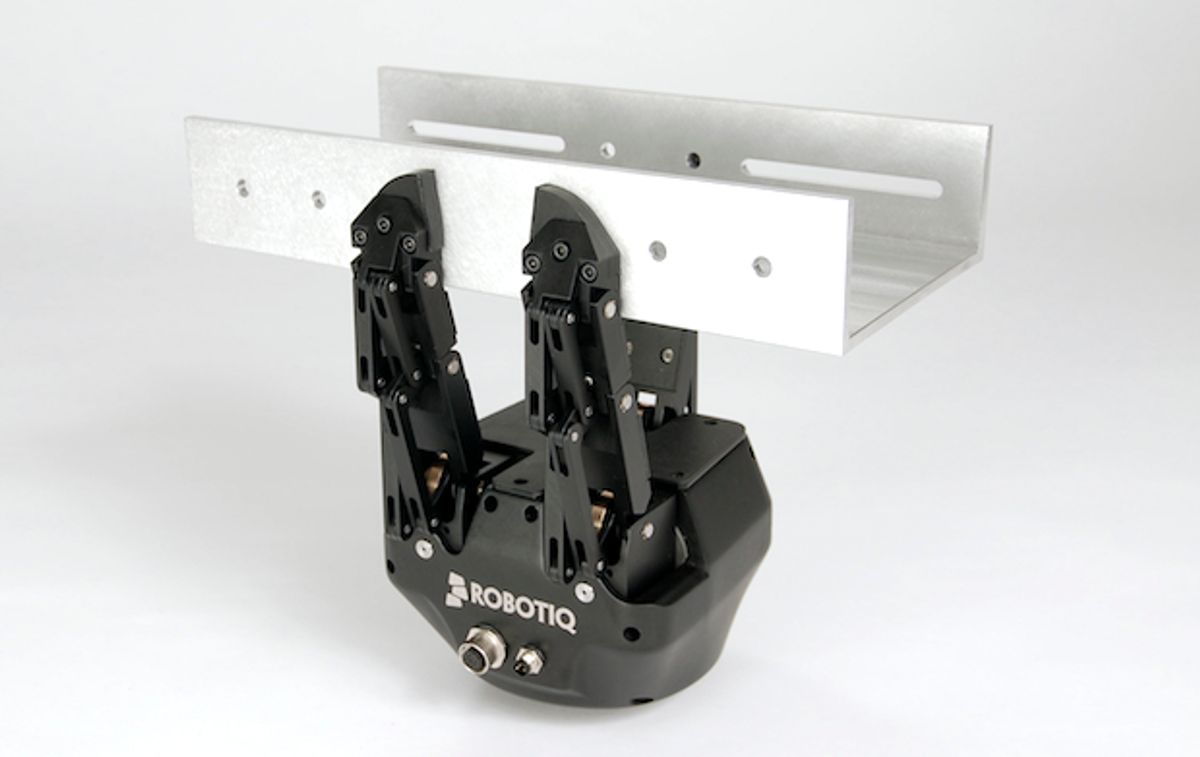This is the third post in our Startup Spotlight series featuring new robotics companies from around the world. We’re inviting representatives from the companies to describe their technologies and how they see the marketplace. The views expressed here are solely those of the author and do not represent positions of IEEE Spectrum or the IEEE.
Startup Spotlight: Robotiq
Founded: June 2008
Location: Quebec City, Canada
Focus: Robot tooling for agile manufacturing
Founded: 2008
Founders: Samuel Bouchard, Vincent Duchaine, Jean-Philippe Jobin
Funding: Self funded
Fun Fact: The company once scared visitors by hiding a robot hand in the candy bowl during Halloween.
Did you know that many manufacturing companies in the United States are producing less than they could because they lack skilled workers? You might think that these companies are rushing to embrace robots but according to the National Institute of Standards and Technology (NIST), 90 percent of all manufacturing companies still don’t have a single robot at all!
It’s a dismal scenario given that the industrial robot was invented more than half a century ago. One of the problems is that robot manipulators have evolved in a direction dictated by their biggest customers: the automotive and electronics industries. Both of these industries rely on high production volumes of standard products. So when smaller companies turn to robots for a solution to their labor shortage, there is a gap between the flexibility that they need and the current state of industrial robots.
In fact, the robot arms themselves are fine: they can do all possible movements required to perform most tasks. But they do need to get "smarter." To make them suitable to the smaller shops with short runs of a high number of different products, they have to become more aware, intelligent, and dexterous.
This gap between what small manufacturers need and what robot makers offer is a huge market opportunity for companies focused on developing completely new robots. Look at Rethink Robotics and Universal Robots, for instance. Both are offering robotics arms that are cheaper, more flexible, and easier to program than traditional offerings.
At Robotiq, our focus is in tooling designed to augment industrial robot arms, making them even more flexible and easier to use. Our company currently offers two types of products. The first one is the Adaptive Robot Grippers: Mechanically intelligent grippers with articulated fingers. The idea behind our robot grippers is to provide maximum flexibility by using a single industrial-grade robot gripper to handle as many different parts as possible instead of a rack full of custom grippers with a tool changer.
You can watch here how they can be used to do assembly on a dual-arm robot.
Our second product, which we just introduced at Automate 2013, is called Kinetiq Teaching. It is a sensor plus software package that can be installed on arc welding robots to enable teaching by demonstration. The goal here is to speed up programming and reduce the skill set necessary to program. Basically, the goal is to have the experienced human welder to be able to learn how to use a robotic welder.
The core competencies to create these products came with the founders and the early employees who learned their robotics skills at the Laval University Robotics Lab, in Canada. This lab has world-class expertise on the mechanical aspects of robotics, inventing clever designs to increase performance, robustness and simplicity of use. This is still part of Robotiq’s DNA.
Like other entrepreneurs, Robotiq’s founders watched as more and more factories closed down and moved to lower wage country, and they decided to do something about it. Granted, industrial robots are not the sexiest. But the behind-the-scene aspect of manufacturing suited them. They know that almost everything we see and use was made in factories, and most of the time we take that for granted. Their goal is to bring robotics to these factories, which are ripe for innovation and reinvention. For them, this is the real robot revolution.
Guy Robert is the marketing director at Robotiq.




